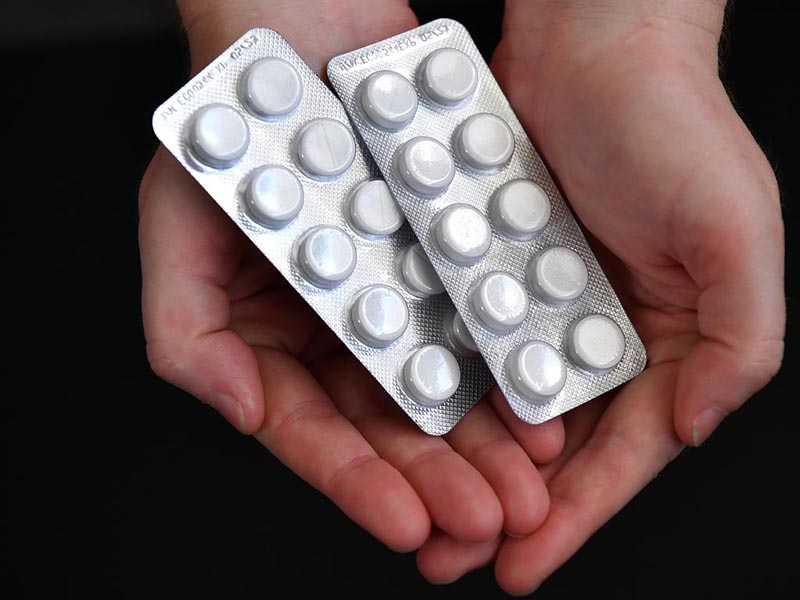
Widening the gap
Prime Minister Anthony Albanese spruiks that his government has developed a targeted approach to achieving heath equality, because all Australians should be equal and have access to better health care and medicines. But is the Prime Minister merely paying lip service while he, and the previous government, have surreptitiously striped away previously available PBS medicines?

24 January 2024
ALAN HAYES
LAST week, Minister for Health and Aged Care, Mark Butler said “The Albanese Government is committed to making medicines cheaper and more affordable for all Australians.
“Alongside cheaper prescriptions, 60-day scripts and encouraging more doctors to bulk bill, we are making health care more affordable and easing the cost of living burden for everyday Australians.”
On Sunday the 21st January, at a ‘doorstop interview' in Adelaide, Minister Butler said “Can I say that we were elected 18 months ago on a promise, among other things, to strengthen Medicare and to make medicines cheaper, and we've been delivering over the course of that time on that promise. In 2022, we slashed the maximum amount that millions of pensioners and concession card holders would pay for all of their medicines needs by 25 per cent. So, pensioners, no matter how many medicines they're on across a given year, will only pay around $5 per week for all of those medicine needs.
“On the 1st of January last year, we delivered the biggest cut to the price of medicines in the 75-year history of the PBS slashing the price of general scripts by almost a third.”
So, which pharmacy is Mr Butler referring to, where you can buy all of your scripts for only $5 per week? Last year PBS medicines for pensioners and concession card holders was $6.50 per script and this year, as from 1 January, they are $7.70 a script.
But the Albanese Government’s subterfuge goes further than fudging on the real cost of medicines at the pharmacy counter for those people living on struggle-street - it’s the medicines that have been removed from the PBS list that’s adversely impacting on many pensioners, forcing them to unnecessarily suffer in pain.
Many aged pensions depend on ‘Panadol Osteo’ for effective relief of persistent pain associated with osteoarthritis and muscular aches and pains such as backache – a problem many people suffer from in old age. Panadol Osteo contains a higher dose of paracetamol than regular tablets. Because it is a bi-layer tablet, it provides an immediate release and a sustained release dose to help manage osteoarthritis pain - providing long-lasting relief from persistent pain.
Panadol Osteo was removed from the PBS list, yet the current government has done nothing to address this problem, instead continuing to condone this medicine’s removal.
The government, at the time this medicine was removed from the PBS list, said that one packet of Panadol Osteo was below the pensioner price of $6.20, so it was removed from the list but the quantity most pensioners would receive on a prescription is two boxes – 192 tablets. Currently, a box of 96 Panadol Osteo tablets from the pharmacy ranges from $9.99 to $10.45. When they were on a script pensioners could obtain two boxes for the single price of a PBS script. Currently they have to pay $20.00 for 192 tablets, which can mean a lot for someone on a low, fixed income.
So, the Government’s claim that all Australians should have equal access to affordable medicines doesn’t ring true.
A Central Coast pensioner contacted the Grapevine after they were informed by their doctor that only if you are Aboriginal or identify as Aboriginal or a Torres Strait Islander person could you obtain a script for two boxes of Panadol Osteo for the single medicine PBS list price. That makes Minister Butler’s recent statement “making medicines cheaper and more affordable for all Australians,” nothing more than a furphy.
The Grapevine spoke to the local doctor who said that Panadol Osteo could only be obtained as a PBS medicine if you were Aboriginal or a Torres Strait Islander. He said that the government had briefed all GPs and that someone only had to claim one percent Aboriginality or identify as an Aboriginal or Torres Strait Islander person to get the PBS list benefits that other Australians are not entitled to.
“You don’t have to provide proof,” he said, “all you I have to do is put it on the person’s file that they claim to be Aboriginal or Torres Strait Islander.”
The Grapevine editor emailed Minister Butler’s media advisor for comment and said “A Central Coast pensioner, who takes Panadol Osteo prescribed by her Doctor, complained that she was informed by her Doctor that the medication had been taken off the PBS list unless you’re Aboriginal.
“I would appreciate the Minister’s comments on this.”
At the time of publication, no comment from the Minister had been received.
The Grapevine also contacted, via email, the Federal Member for Dobell and Assistant Minister for Health, Emma McBride’s media advisor and said “A Central Coast pensioner, who takes Panadol Osteo, prescribed by her Doctor to help ease her osteoarthritis pain, complained to the Grapevine that she was informed by her Doctor that the medication had been taken off the PBS list, unless you identify as an Aboriginal person.
“I spoke to a local GP, who has informed me that if you are Aboriginal you can obtain a script for a 192 tablets for the PBS list price - for non-Aboriginal persons, which includes pensioners and individuals with a health concession card, it will cost around $20.00.”
Again, there was not the courtesy of a reply.
It is disappointing that both the Minister for Health and the Assistant Minister for Health have chosen to hide from the truth, and instead of explaining why some Australians are being disadvantaged by our heath care system bury their heads in the sand.
Emma McBride’s failure to respond is doubly disappointing, since she is also a pharmacist and would know only too well how important it is for those people on a low income to receive medicines that they can afford.
Yet, the removal of Panadol Osteo is only the tip of the iceberg – many more common medicines that pensioners and low income families need access to have also been removed from the PBS list.
While the cost of living soars, Prime Minister Anthony Albanese continues to reassure all Australians that his government is tackling the problem – but pensioners, who suffer from osteoarthritis, like the person who contacted the Grapevine, continue to suffer the lip service of politicians.
If we are to close the gap, so that all Australians are equal, it won’t happen when you are selective on something as important as health and medicines.








.jpg?crc=4257584689)










_web.jpg?crc=282450513)



